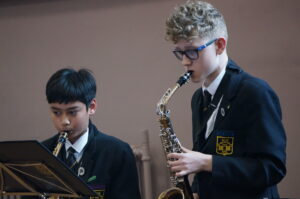Excerpt from: “Happiness” by Heather Harpham.
“On my first date we went to an intimate place on the corner of Jane Street in Greenwich Village. The kind of place where, to reach your table, you’re obliged to wedge sideways and apologize to strangers whom you’ve brushed with your hips. Seated, we leaned over the small table to breathe the same air and figure each other out. He said he’d read recently that everyone has a personal “happiness quotient,” that your happiness in life is essentially set, regardless of circumstances. He reckoned his was low, and guessed mine was high.
I’d never heard of a happiness quotient. I’d never stopped to consider happiness as anything other than an assumed default state, a place to return to after the occasional thick fog. If, as a kid, I had been asked to state the one thing I believed to be true about my future, I’d have said, “I’ll have a happy life.”
Not that I’d had a blindingly happy childhood. I hadn’t. Everything in my world moved fast, and my job was to hang on. Still, I’d emerged with the idea that my own adult life would be happy and essentially free of adversity.”
On March 20th it was technically the first day of Spring. That is because it was the vernal equinox. The moment in the celestial year when the Sun crosses the Equator, and the seasons change. Meaning that “yesterday” was of equal length to “yesternight” (if that is a word). Sun up at 6:15, sun down at 6:15. Equilibrium, you might say. A moment when the Earth is in balance once again.
And so, in the spirit of bringing a little balance at a time when the human world seems overly weighed down with the doom and gloom of COVID and war and rampant economic inflation, I can also tell you that March 20th was the International Day of Happiness. Hence the excerpt above, about the notion that we all have a ‘happiness quotient’. A fixed amount of happiness that we all return to throughout our lives.
I wonder if you believe that? I’m not certain I do. Mind you, I am not entirely sure how I feel about it being the International Day of Happiness just because the United Nations decreed it so either. On June 28, 2012, UN resolution number 66/281 was adopted. By consensus of the 193 member states of the United Nations, 20th March officially became the International Day of Happiness.
I don’t know if anyone voted against it. Whether there was some rogue nation holding out for an International Day of Grumpiness to balance it all out? Anyway, it was made official. We were all supposed to be happy on March 20th.
It is all very laudable of course. The person behind the UN resolution was an orphan, rescued from the streets of Calcutta by Mother Teresa herself. Who’s going to argue with someone like that? He grew up to found the International Day of Happiness Trust. Launched the first day in 2013 with the help of Nelson Mandela’s grandson and Bill & Hillary Clinton’s daughter, Chelsea.
The next year he had Pharrell Williams onboard. The guy who gave us one of the world’s most irritating songs. “Clap along if you feel like happiness is the truth”. The song that will not fade away.
Then he went to the UN and name-checked a few of his other supporters: ancient sages and philosophers such as the Bhudda, Socrates, Confucius, Aristotle, Plato. Religious figures like Jesus, Abraham, Moses, and the prophet Muhammad. All of whom were pretty unanimous on the idea that happiness is a good thing.
The UN were hardly going to disagree, were they? Although they did manage to make the whole concept of happiness sound a bit less sexy by writing it down dry legalese, stating that:
“the pursuit of happiness is a fundamental human goal, which recognises also the need for a more inclusive, equitable and balanced approach to economic growth that promotes sustainable development, poverty eradication, happiness and the well-being of all peoples.”
What a way to really spread the joy!
They then went on to debate a report from the International Institute of Management which detailed something called the Gross National Happiness Index. The Gross National Happiness Index is an exciting little formula that measures multiple economic indicators and demographic statistics and calculates how happy a nation is. Economists are such fun people.
And then, when the debate was finally over and they decided that everyone should be happy one day a year, a flood of bureaucratic organisation poured forth. Campaigns and websites and hashtags and petitions and ‘Happiness’ resolutions and slogans and themes and media events and…. goodness it all got so exhausting.
I don’t really mean to criticise because I genuinely do think that it is admirable to want to spread the message that it is a fundamental human right to be happy. My only observation would be why wait for 20th March each year. Why not just start with ourselves, each morning? Today perhaps?
I would love for each of you be happy, or even to just think about being happy, tomorrow as well. To reflect upon what that means for you. By all means, think about the plight of the world’s people, those less fortunate than you, those who live in the shadow of sadness. Have a quick glance at the Gross National Happiness Index if you want. Put Pharrell Williams on repeat if you feel the need to.
But perhaps don’t get so guilt-ridden or world-worried or bureaucratically formulaic about the whole thing that you miss the opportunity to just simply reflect upon what makes you happy. As strange as it seems, psychologists say that we often don’t actually know what makes us happy. We know what we think should do it. What’s supposed to make us happy. But then we are often left confused and unsettled when some of those ideals fail.
So, I recommend spending some time just thinking about what actually works for you personally. Because here’s the thing. Once you get past the simplistic and the superficial. Once you’ve gorged on one too many Mars bars or binged on three solid hours of mindless YouTube surfing, or done whatever else it is you do for a quick fix of serotonin. Once you’ve done that, I am prepared to bet that the stuff that actually makes you really happy, in the lasting and meaningful way that Buddha & Co were on about, revolves around four things:
1. Succeeding at something you found really hard and then being proud of yourself. Really, laugh-out-loud, “Damn I’m good” pride in yourself. That is a great source of happiness, especially as exam season looms
2. The buzz that comes from doing something generous and unexpected for another person. Volunteering, donating, the whole random-acts-of-kindness thing. The amazing response you give to our Charity Fundraising events be it for Comic Relief, Children in Need or Save the Children’s Ukraine Disaster Appeal. Altruism makes you happy, that is now a scientifically proven fact
3. Being part of something bigger than yourself. The happiness that comes from a sense of belonging. Plenty of opportunity for that right here. As I have said previously, just look at the remarkable number of you who have competed for your House or the School so far this year. Or turned out to support others who represent you.
4. Or simply the number one source of happiness throughout human history. True for every age, every culture, every nation. Your relationships with other people. The very thing that this place is built on.
None of the superficial things: money, status, power, possessions. Just the good stuff – loving and being loved. Perhaps the arrival of Spring has lifted your mood. Maybe you even did observe the International Day of Happiness. But I hope that you are able to find a little happiness every day. To recognise it, to create it for yourself and to let it keep your world in a healthy emotional balance.
Stay well and safe.
Be kind to yourself and others.
Best wishes,
Dr Bird



























